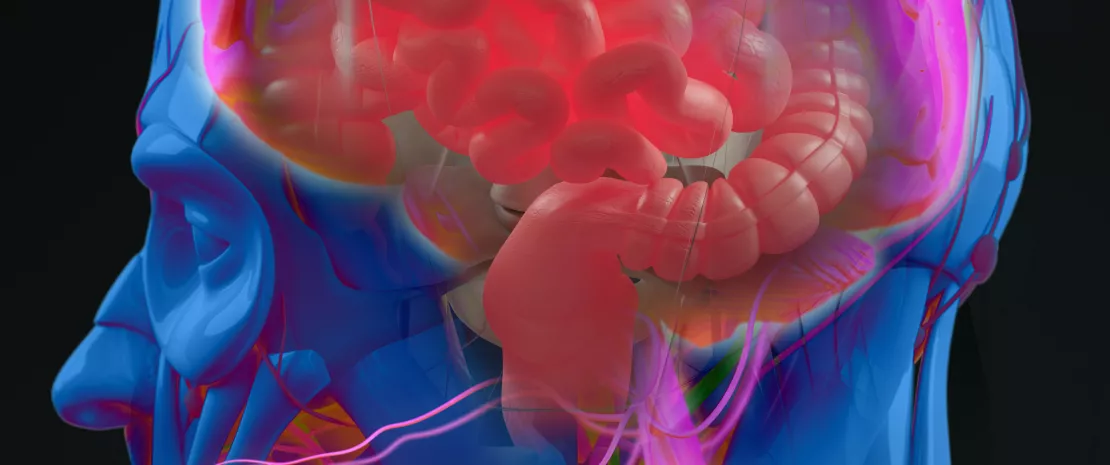Depression: towards confirmation of a gut-brain dialogue?
Quality of life and depression might be partly linked to the composition of the intestinal microbiota? A study has traced the outlines of a neuroactive intestinal microbiota–or neuromicrobiome–a new, fast-growing research field.
Lay public section
Find here your dedicated section
Sources
This article is based on scientific information

About this article
Mental diseases do not just involve cerebral processes alone, as evidenced by the increasing body of research into the gut-brain axis. This is the case for a Belgian-Dutch study which demonstrated a link between quality of life (QoL), depression and composition of the intestinal microbiota.
Intestinal markers of the disease?
The researchers sequenced the genome of intestinal bacteria of two Belgian and Dutch cohorts (1,054 and 1,063 individuals respectively) after collecting the (sidenote: QoL questionnaire RAND questionnaire with 36 questions providing a score between 0 and 100 ) from the participants (partly diagnosed with depression). By analyzing bioinformatics data, they succeeded in correlating the presence of certain bacteria with depression: by way of example Dialister, Faecalibacterium, and Coprococcus were positively linked to the final QoL score. This would be in line with the fact that two of them produce butyrate, a short chain fatty acid found in lower quantities in depressive people. Another important result: Coprococcus and Dialister were depleted in depressive patients (whether or not they were taking antidepressant treatment) in both cohorts. These two bacterial genera could therefore represent potential “psychobiotics”, i.e. probiotics promoting good mental health.
A wide range of neuroactive agents
The researchers also demonstrated a positive correlation between QoL and synthesis of dihydroxyphenylacetic acid (DOPAC), a metabolite of dopamine, by certain intestinal bacteria. Many other (sidenote: Compounds Dopamine, acetylcholine, glutamate, acetate, propionate, butyrate, histamine, kynurenine, p-cresol, among others ) are likely to be involved in gut-brain interactions under the influence of the intestinal microbiota, first and foremost serotonin: potentially produced by the bacteria Akkermansia, Alistipes, and Roseburia, serotonin is the most commonly found molecule in the gastrointestinal tract. GABA (γ-amino-butyric acid, another neurotransmitter capable of inhibiting excess neural impulses in neurons) is also likely to have an important neuroactive role to play, as one of its synthesis pathways was more active in depressive patients in one of the cohorts. These new avenues must be investigated to better characterize the effects of the neuromicrobiome.






